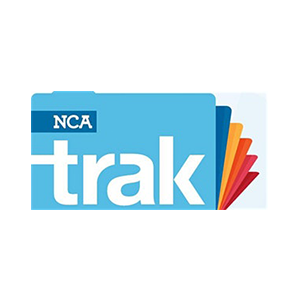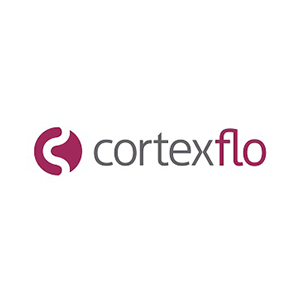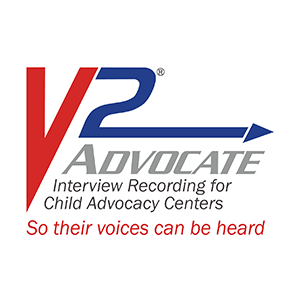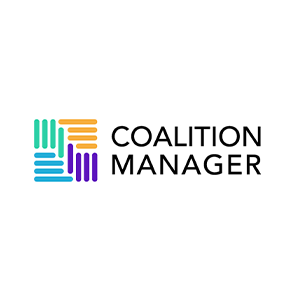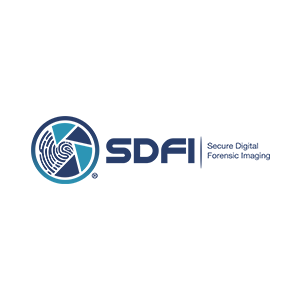
Accessing Workshops & Live Sessions
Please note, all workshop recordings will be released June 7th at 9am Eastern. The agenda below is a suggested schedule for attendees. All live sessions will take place June 7-9. Each live session will be recorded and available on-demand until September 30, 2021.
CLICK HERE to print a schedule
Wednesday, June 9, 2021
10:00 am - 11:00 am EDT
Concurrent Session Four
Concurrent Sessions 4A-4J
Track: Research & Innovative Practices
Session 4A: Interpreters in the Forensic Interview
Overview
Track: Research & Innovative Practices
Understanding the process of utilizing an interpreter in a forensic interview is important for both the interviewer and interpreter. Both professions follow best practice policies according to their profession. Knowing how these two professions work together within the context of an investigative interview is imperative. This presentation will focus on the importance of neutrality, indirect translation, preparing for traumatic details and pre-interview conversations for both interpreter and interviewer.
Speaker(s)
Jodie Hively, Child/Adolescent Forensic Interviewer
Shannon Martucci, Child/Adolescent Forensic Interviewer
Track: Business of Child Advocacy
Session 4B: Building a Partnership with Schools for Impactful Prevention Work
Overview
Track: The Business of Child Advocacy
Want to develop meaningful, impactful prevention partnerships with schools? Learn how to identify key stakeholders and what the important steps are for partnerships. We'll review case studies of successful partnerships and strategies and plans you can take back to your CAC.
Speaker(s)
Katelyn Brewer, President/CEO
Stacy Pendarvis, MSW, MA, Vice President of Programs
Track: Chapter
Session 4C: Is It Worth It? Expanding Mental Health Offerings
Overview
Track: Chapter
Are you a Chapter leader thinking of expanding the support and evidence-based training you offer CACs? Are you a CAC leader thinking of implementing a new evidence-based practice but unsure of the challenges you will face? Come see how the Illinois Chapter went from minimal support for mental health professionals to offering a cadre of services, and the impact that had on the Will County CAC.
Speaker(s)
Cara A. Vock, Director of Programs
Lorraine Guerrero Neumayer, LCSW, Senior Trauma Therapist
Track: Research & Innovative Practices
Session 4D: Tools for Schools (and MDTs): A Model Response to Student Sexual Abuse
Overview
Track: Research & Innovative Practices
When a sexual abuse/assault allegation involves a teacher or fellow student, schools generally have an affirmative Title IX duty to investigate. But schools often do not understand the impact of the early steps they take on a subsequent law enforcement investigation, MDT process, or victim well-being. We will review model guidelines developed by San Mateo County’s MDT to jointly navigate these complex cases with schools.
Speaker(s)
Miriam Wolf, MS, LCSW, Director, Forensic Interview Program
Amanda LeBlanc Freeman, Program Director
Track: Research & Innovative Practices
Session 4E: Integrating a Trauma-Informed Educational Approach into Professional Development
Overview
Track: Research & Innovative Practices
This session considers integrating trauma-informed education (TIE) into MDT professional development. The approach is sensitive to MDT members’ trauma histories and allows for modeling of trauma-informed care. Attendees will discuss past training experiences, and presenters will share their success using TIE in problematic sexual behavior training for a local MDT.
Speaker(s)
Amie Myrick, LCPC, National Training Director
Jennifer Redding, LCSW-C, Executive Director, Behavioral Health Services
Track: Advocacy & Communications
Session 4F: No More Fatalities: How to Keep Families Together and Children Safer
Overview
Track: Advocacy & Communications
Every 5 hours in the U.S., a child is killed by abuse or neglect. While CPS works to right-size its response and avoid disruption of families whose problems are rooted in poverty, a call to a CPS hotline is still the single greatest predictor of future injury and death to young children. How can policies be changed to reconcile both sides of this issue?
Speaker(s)
Amy C. Harfeld, National Policy Director
Denise Edwards, Senior Director of Government Affairs
Track: Research & Innovative Practices
Session 4G: NCAtrak: An In-Depth Demonstration of Its Powerful Suite of Tools and New Features
Overview
Track: Research & Innovative Practices
Familiarize yourself with the powerful features available in NCAtrak case management system, including recently implemented features, ask the NCAtrak team questions, and gain insight on general database management and reporting best practices regardless of the case tracking system you use.
Speaker(s)
Gary Cossaboom, NCAtrak Manager
Troy Price, NCAtrak Training & Application Specialist
Track: Research & Innovative Practices
Session 4H: Measures that Matter for CACs
Overview
Track: Research & Innovative Practices
Explore current trends and take this opportunity for critical reflection on outcomes and outputs at CACs across the U.S. Learn how to improve measurement and evaluation so you measure what matters for CACs.
Speaker(s)
Kaitlin Lounsbury, MA, Program Evaluation Coordinator
Dr. Kristi K. Westphaln, Assistant Professor/Adjust Instructor
Marie Masotya, Senior Research Project Coordinator
Track: Research & Innovative Practices
Session 4I: Creating a Replicable CAC/MDT Response for Child Victims of Commercial Sexual Exploitation
Overview
Track: Research & Innovative Practices
Although victims and traffickers often cross county and state borders, Pennsylvania didn't have standardized responses for suspected child victims of commercial sexual exploitation (CSEC). MKCAC will discuss how it adapted traditional MDT responses to meet the unique needs of CSEC cases in ways that are replicable across CACs.
Speaker(s)
Abbie Newman, R.N., J.D., Chief Executive Officer
Jane Kim, Esq., Program Director
Track: Research & Innovative Practices
Session 4J: Empowerment & Ease through Embodiment
Overview
Track: The Business of Child Advocacy
Join self-proclaimed "Vinyasa Vixen" Larkin Silverman for an accessible, affirming, and empowering trauma-informed Embodied Movement practice that draws from on the varied modalities Chair Yoga, Vinyasa Yoga, Barre, and dance designed to get you out of your head, into your body. In this scaleable 45-minute workshop, participants will learn seated stretches with progressive standing and mat options, to connect to your breath with intent, take stock of your internal resources, and take up space - intentionally devoting energy to yourself. Learn the power in taking intentional, deliberate rest, and getting your own needs met before you work towards serving others.
What does it mean to teach trauma informed movement?
Trauma, (or “toxic stress”), is resultant from the experience of an external event or events that overwhelm our systems; “un-digestible event(s).” When we are traumatized our body’s normal ability to self-regulate and find homeostasis gets completely out of whack, and creates a body that can feel inhabitable. These traumas can be interpersonal, institutional, and/or structural, and take myriad forms.These traumas could also be vicarious - think traumas borne witness to in the course of professional work.
Any movement modality and practice (whether Asana, Pranayama, running, barre, crossFit etc) is by its nature a physical one.We all have many layers and levels of experience and we bring these with us onto our mat, or into the workout. We don’t have to be obsessive about what our students are bringing into our studio with them, or go beyond our bounds as a fitness instructor, but as teachers leading folks through movement and body work, we do have a duty to create safety for the most amount of people walking through our doors as they undertake that practice in our classes. Exercise is an awesome and integral piece of self-care, and can be immensely empowering and healing. We want our students to feel a sense of ease and joy practicing or working out with us, and not be shamed, hurt, or punished by or in their bodies.
Trauma-informed yoga means not exacerbating existing trauma, and holding space that allows folks to find ease:
• Students can find and exercise agency and control (make choices to modify or amplify, for example) in their physical practice (perhaps your student has not had autonomy over their own body)
• Reconnect with their body as a site of safety
• Practice self-regulations; especially in breathing
• Practice and find homeostasis - stability, equilibrium in parasympathetic nervous system
• Find a practice interoception: feel and understand what’s going on within your own body
• Find and practice proprioception: (relative position of one’s body in relation to the room/context)
Tenants of a trauma-informed practice:
• Orienting - orient students to the room, to the practice; establish boundaries and structure of the class
• Grounding - “Take up space”
• Resourcing - validate needs
It is critical that movement professionals who seek training to teach from a trauma informed perspective maintain a clear scope of practice and do not attempt to fill the role of therapist or supplant accredited professional
What is barre fitness?
Barre is a high-repetition, low-impact, full-body workout that fatigues the muscles through precise movement done to the beat of the music to build strength, and facilitates length, by deeply stretching the muscles after they are worked as a release. The signature “shake” that so many experience in Barre is a sign that the muscle has reached the point of fatigue.
Barre is rooted in Ballet, hence, the literal bar used in barre, and many of the French names for the most common moves and positions. As a distinctive workout modality, Barre’s origin is credited to the acclaimed German dancer and activist Lotte Berk who created the workout after sustaining a back injury - her Barre classes combined the ballet bar with rehabilitative exercises. Barre combines elements of ballet, strength training, aerobics, Pilates, and yoga.
What is body neutral fitness?
While Body Positivity - the social movement rooted in the belief that all human beings should have a positive body image, and be accepting of their own bodies as well as the bodies of others - has gained cultural prominence, Body Neutrality is a framework that posits all bodies are inherently worthy and that striving for positivity is not the end goal. While Body Positivity posits that beauty is a construct of society, and that this construct should not infringe upon one's ability to feel confidence or self-worth, it has largely been co opted via social media and can still fall into rhetorical traps founded in our toxic Diet Culture. Body Neutrality has roots in the Health at Every Size (HAES) movement, fat acceptance movement, and is a tenant of Body Liberation - an intersectional social justice movement aimed at restoring equity to historically marginalized bodies - bodies of Color, Disabled Bodies, gender non-confroming bodies, and Trans bodies.
In a Body Neutral movement practice, modifications or ‘customizations’ are normalized and celebrated, and all choices are offered without qualifiers. We deliberately find alternatives to industry norm verbal cues and language that belittles and shames in a misguided attempt to motivate clients. The focus is never on IWL and/or aesthetic ‘results.’ Effectiveness is framed as uncovering newfound strength, stamina, and ability in ourselves. We use caution and care, cognizant of the explicit and implicit messages we send about the inherent worth and value of all bodies.
Yoga supply recommendations:
You don’t need to spend a ton of money to invest in your self care, and yoga and fitness equipment is becoming more and more readily available from major retailers. That being said, investing in a high quality mat can enhance your practice immensely.
My personal favorite padded yoga mat - B Yoga Strong:
https://us.byoganow.com/?aff=3...
15% off with promocode ‘VINYASAVIXEN_15’
My personal favorite standard yoga mat - TVLA Yoga Align:
15% off with promocode ‘LARKIN15’
• Check out this link for all of my favorite recs and exclusive discount codes:
https://www.vinyasavixen.com/q...
• Find common household swaps for fitness equipment here:
https://www.instagram.com/p/CI...
• Access a FREE Embodied Movement guide here:
https://www.vinyasavixen.com/e...
Speaker(s)
Larkin Silverman, Certified Trauma E-RYT Yoga & Barre Fitness Instructor
11:15 am - 12:00 pm EDT
Session Four LIVE Q&A
Concurrent Session Four LIVE Q&As. Five 45 minute live Q&A sessions are scheduled for this time. Each live session will be recorded and available on-demand until September 30, 2021.
LIVE Q&A - 4C: Is It Worth It? Expanding Mental Health Offerings
Overview
Track: Chapter
Are you a Chapter leader thinking of expanding the support and evidence-based training you offer CACs? Are you a CAC leader thinking of implementing a new evidence-based practice but unsure of the challenges you will face? Come see how the Illinois Chapter went from minimal support for mental health professionals to offering a cadre of services, and the impact that had on the Will County CAC.
LIVE Q&A - Session 4F: No More Fatalities: How to Keep Families Together and Children Safer
Overview
Track: Advocacy & Communications
Every 5 hours in the U.S., a child is killed by abuse or neglect. While CPS works to right-size its response and avoid disruption of families whose problems are rooted in poverty, a call to a CPS hotline is still the single greatest predictor of future injury and death to young children. How can policies be changed to reconcile both sides of this issue?
Speaker(s)
Amy C. Harfeld, National Policy Director
Denise Edwards, Senior Director of Government Affairs
LIVE Q&A - Session 4G: NCAtrak: An In-Depth Demonstration of Its Powerful Suite of Tools and New Features
Overview
Track: Research & Innovative Practices
Familiarize yourself with the powerful features available in NCAtrak case management system, including recently implemented features, ask the NCAtrak team questions, and gain insight on general database management and reporting best practices regardless of the case tracking system you use.
Speaker(s)
Gary Cossaboom, NCAtrak Manager
Troy Price, NCAtrak Training & Application Specialist
LIVE Q&A - Session 4H: Measures that Matter for CACs
Overview
Track: Research & Innovative Practices
Explore current trends and take this opportunity for critical reflection on outcomes and outputs at CACs across the U.S. Learn how to improve measurement and evaluation so you measure what matters for CACs.
Speaker(s)
Kaitlin Lounsbury, MA, Program Evaluation Coordinator
Dr. Kristi K. Westphaln, Assistant Professor/Adjust Instructor
Marie Masotya, Senior Research Project Coordinator
LIVE Q&A - Session 4J: Empowerment & Ease through Embodiment
Overview
Track: The Business of Child Advocacy
Join self-proclaimed "Vinyasa Vixen" Larkin Silverman for an accessible, affirming, and empowering trauma-informed Embodied Movement practice that draws from on the varied modalities Chair Yoga, Vinyasa Yoga, Barre, and dance designed to get you out of your head, into your body. In this scaleable 45-minute workshop, participants will learn seated stretches with progressive standing and mat options, to connect to your breath with intent, take stock of your internal resources, and take up space - intentionally devoting energy to yourself. Learn the power in taking intentional, deliberate rest, and getting your own needs met before you work towards serving others.
What does it mean to teach trauma informed movement?
Trauma, (or “toxic stress”), is resultant from the experience of an external event or events that overwhelm our systems; “un-digestible event(s).” When we are traumatized our body’s normal ability to self-regulate and find homeostasis gets completely out of whack, and creates a body that can feel inhabitable. These traumas can be interpersonal, institutional, and/or structural, and take myriad forms.These traumas could also be vicarious - think traumas borne witness to in the course of professional work.
Any movement modality and practice (whether Asana, Pranayama, running, barre, crossFit etc) is by its nature a physical one.We all have many layers and levels of experience and we bring these with us onto our mat, or into the workout. We don’t have to be obsessive about what our students are bringing into our studio with them, or go beyond our bounds as a fitness instructor, but as teachers leading folks through movement and body work, we do have a duty to create safety for the most amount of people walking through our doors as they undertake that practice in our classes. Exercise is an awesome and integral piece of self-care, and can be immensely empowering and healing. We want our students to feel a sense of ease and joy practicing or working out with us, and not be shamed, hurt, or punished by or in their bodies.
Trauma-informed yoga means not exacerbating existing trauma, and holding space that allows folks to find ease:
• Students can find and exercise agency and control (make choices to modify or amplify, for example) in their physical practice (perhaps your student has not had autonomy over their own body)
• Reconnect with their body as a site of safety
• Practice self-regulations; especially in breathing
• Practice and find homeostasis - stability, equilibrium in parasympathetic nervous system
• Find a practice interoception: feel and understand what’s going on within your own body
• Find and practice proprioception: (relative position of one’s body in relation to the room/context)
Tenants of a trauma-informed practice:
• Orienting - orient students to the room, to the practice; establish boundaries and structure of the class
• Grounding - “Take up space”
• Resourcing - validate needs
It is critical that movement professionals who seek training to teach from a trauma informed perspective maintain a clear scope of practice and do not attempt to fill the role of therapist or supplant accredited professional
What is barre fitness?
Barre is a high-repetition, low-impact, full-body workout that fatigues the muscles through precise movement done to the beat of the music to build strength, and facilitates length, by deeply stretching the muscles after they are worked as a release. The signature “shake” that so many experience in Barre is a sign that the muscle has reached the point of fatigue.
Barre is rooted in Ballet, hence, the literal bar used in barre, and many of the French names for the most common moves and positions. As a distinctive workout modality, Barre’s origin is credited to the acclaimed German dancer and activist Lotte Berk who created the workout after sustaining a back injury - her Barre classes combined the ballet bar with rehabilitative exercises. Barre combines elements of ballet, strength training, aerobics, Pilates, and yoga.
What is body neutral fitness?
While Body Positivity - the social movement rooted in the belief that all human beings should have a positive body image, and be accepting of their own bodies as well as the bodies of others - has gained cultural prominence, Body Neutrality is a framework that posits all bodies are inherently worthy and that striving for positivity is not the end goal. While Body Positivity posits that beauty is a construct of society, and that this construct should not infringe upon one's ability to feel confidence or self-worth, it has largely been co opted via social media and can still fall into rhetorical traps founded in our toxic Diet Culture. Body Neutrality has roots in the Health at Every Size (HAES) movement, fat acceptance movement, and is a tenant of Body Liberation - an intersectional social justice movement aimed at restoring equity to historically marginalized bodies - bodies of Color, Disabled Bodies, gender non-confroming bodies, and Trans bodies.
In a Body Neutral movement practice, modifications or ‘customizations’ are normalized and celebrated, and all choices are offered without qualifiers. We deliberately find alternatives to industry norm verbal cues and language that belittles and shames in a misguided attempt to motivate clients. The focus is never on IWL and/or aesthetic ‘results.’ Effectiveness is framed as uncovering newfound strength, stamina, and ability in ourselves. We use caution and care, cognizant of the explicit and implicit messages we send about the inherent worth and value of all bodies.
Yoga supply recommendations:
You don’t need to spend a ton of money to invest in your self care, and yoga and fitness equipment is becoming more and more readily available from major retailers. That being said, investing in a high quality mat can enhance your practice immensely.
My personal favorite padded yoga mat - B Yoga Strong:
https://us.byoganow.com/?aff=3...
15% off with promocode ‘VINYASAVIXEN_15’
My personal favorite standard yoga mat - TVLA Yoga Align:
15% off with promocode ‘LARKIN15’
• Check out this link for all of my favorite recs and exclusive discount codes:
https://www.vinyasavixen.com/q...
• Find common household swaps for fitness equipment here:
https://www.instagram.com/p/CI...
• Access a FREE Embodied Movement guide here:
https://www.vinyasavixen.com/e...
Speaker(s)
Larkin Silverman, Certified Trauma E-RYT Yoga & Barre Fitness Instructor
12:00 pm - 12:15 pm EDT
Wednesday Update with Teresa Huizar, Executive Director
Overview
Wednesday Update with Teresa Huizar, Executive Director
Speaker(s)
Teresa Huizar, Executive Director
12:15 pm - 12:30 pm EDT
Visit Town Square
Our 2021 Leadership Conference would not be possible without the support of our sponsors and exhibitors. Please take a moment to explore the Virtual Town Square and exhibit booths to learn more about these special organizations.
12:30 pm - 1:30 pm EDT
Lunch Break
1:30 pm - 2:30 pm EDT
Concurrent Session Five
Concurrent sessions 5A-5J
Track: Advocacy & Communications
Session 5A: Stepping Stones: Using the MDT to Pave the Way for Upstream Success
Overview
Track: Advocacy & Communications
The presentation will describe why prevention is important in advocacy work and why the focus on successfully preventing child abuse has shifted to include the multidisciplinary team. This presentation will be broken up into five major components: (1) the purpose of the multidisciplinary team, (2) how it differs between urban and rural communities, (3) the different expertise and unique contributions provided by the team members, and (4) how and why it is effective in providing a jumping off point in promoting child abuse prevention and child welfare. Lastly, (5) the unique activities being done by both the rural and urban communities to promote prevention and how those efforts will be continued will be discussed.
Speaker(s)
Shelley Soroka Spense, Program Manager for Gila County
Shea Painter, Children’s Justice Coordinator for the Children’s Center of Arizona
Track: Research & Innovative Practices
Session 5B: A Picture is Worth a Thousand Words: Presenting Evidence in the Forensic Interview
Overview
Track: Research & Innovative Practices
The use of technology has impacted how children and adolescents are victimized--and can increase the likelihood that a victim will not disclose. Reluctant children may need more cues, which may mean utilizing evidence in the forensic interview. We'll discuss the use of evidence, with emphasis on abusive images, in the interview.
Speaker(s)
Maggie Sweeney, Child/Adolescent Forensic Interviewer
Shannon Martucci, Child/Adolescent Forensic Interviewer
Track: Research & Innovative Practices
Session 5C: Failure to Protect: Institutional Response to Child Maltreatment
Overview
Track: Research & Innovative Practices
Extracurricular activities, sports, and religion activities can enhance resilience in children and youth--if youth-serving organizations effectively protect kids from institutional abuse. We'll explore problems such as perpetrator protection and institutional loyalty, and institutional changes that could help protect kids.
Speaker(s)
Amy Russell, MSEd, JD, NCC, Executive Director
Track: Research & Innovative Practices
Session 5D: The Protection Clarification: A Child-Focused Caregiver Treatment Intervention
Overview
Track: Research & Innovative Practices
The Protection Clarification is a mental health direct service practice for caregivers designed to affirm their child's reality of abuse, clarify their response to knowledge of the abuse, support the child's healing, empower the caregiver as a protective resource, and more. It provides guidance to child welfare agencies regarding future safety for visitation and for caregiver-child reunification.
Speaker(s)
Libby Ralston, Director Emeritus
Paula Condol, M.S., LPCC, Executive Director
Track: Research & Innovative Practices
Session 5E: Statewide ACEs/PCEs Project: Collecting & Using Data
Overview
Track: Research & Innovative Practices
A statewide project collected adverse/positive childhood experiences (ACEs and PCEs) data from centers across Arizona's rural, urban, and tribal areas. We'll discuss lessons learned and how risk/resiliency data can be used for grant funding, program improvement, and advocacy for high-risk populations.
Speaker(s)
Dr. Jared Chamberlain, Associate Dean
Dr. Shefali Gandhi, Licensed Psychologist
Trevor Umphress, Executive Director
Track: Business of Child Advocacy
Session 5F: Climbing Red Mountain: The Evolution of SRPMIC Tribal Family Advocacy Center
Overview
Track: The Business of Child Advocacy
This session highlights the growing process of a tribal Multi-Disciplinary Team Meeting (MDT) on the O'Odham/Piipaash lands of the Salt River Pima-Maricopa Indian Community (SRPMIC) Family Advocacy Center. Be ready to engage in a dynamic and growing discussion on obstacles and opportunities in thriving as a tribal FAC.
Speaker(s)
Durina Keyonnie, LCSW, Trauma Therapist
Mannalle Davis, Victim Advocate
Track: Business of Child Advocacy
Session 5G: Moving Beyond Case Review: The Role of Team Facilitator
Overview
Track: The Business of Child Advocacy
The Regional CACs have developed a conceptual model for a team facilitator that expands the definition of the role in the multidisciplinary team and elevates the position as essential to building team trust, nurturing relationships, fostering accountability, and improving outcomes for children and families. Let's discuss what's essential for strong MDT leadership.
Speaker(s)
Karen Hangartner, LMSW, Project Director, Southern Regional Children’s Advocacy Center
Vicky Gwiasda, Program Manager, Western Regional Children’s Advocacy Center
Track: Advocacy & Communications
Session 5H: Child Sexual Abuse Prevention for Adults: Moving the Bystander Approach Upstream
Overview
Track: Advocacy & Communication
Most prevention curricula for adults focuses on warning signs for sex offending but don't address known risk and protective factors for first-time offending. Let's talk about changing social norms, creating nurturing relationships, and maintaining safe environments--analyzing relationship boundaries and their intersections with personal and organizational culture to prevent child sexual abuse.
Speaker(s)
Danise Elijah, BA, Violence Prevention Community Educator
Sally Blackwood, MA, LPC, Violence Prevention Community Educator
Track:
Session 5I: How NCA Grant Funding Can Make a Difference at your CAC
Overview
Track: The Business of Child Advocacy
Across the country, CACs are developing innovative, exciting projects that are game-changers for our movement. Join a panel of NCA grantees as they share their accomplishments, challenges, and tips on how to carry out a successful grant year.
Speaker(s)
Dominic Prophete, JD, Chief Executive Officer
Faith Muddiman, MS, Director of Grants Management
Kay W. Phillips, Ph.D., LISW-CP, Executive Director
Marsha Pigga, Executive Director
Thirjeet Matharu, MSW, Senior Coordinator of Family Advocate Volunteer Initiative
Michelle Shores, RN, MSN, MBA-HC, CEN, SANE-A, SANE-P, Director of Forensic Health Services
Track: Research & Innovative Practices
Session 5J: Remote Testimony at a Child Advocacy Centre: Theory and Practice
Overview
Track: Research & Innovative Practices - Learn from the challenges faced by our team at the Calgary & Area Child Advocacy Centre in implementing a remote CCTV testimony room to provide children and youth an alternate way to provide testimony in criminal court. We'll discuss the scientific theory about why this may increase accuracy of testimony and assist in the quest for a just decision based on the truth.
Speaker(s)
Dr. Sarah MacDonald, Forensic Interview Specialist
Melanie Grylls, Director, Programs and Services
2:45 pm - 3:30 pm EDT
Session Five LIVE Q&As
Concurrent Session Five LIVE Q&As. Five 45 minute live Q&A sessions are scheduled for this time. Each live session will be recorded and available on-demand until September 30, 2021.
LIVE Q&A - Session 5D: The Protection Clarification: A Child-Focused Caregiver Treatment Intervention
Overview
Track: Research & Innovative Practices
The Protection Clarification is a mental health direct service practice for caregivers designed to affirm their child's reality of abuse, clarify their response to knowledge of the abuse, support the child's healing, empower the caregiver as a protective resource, and more. It provides guidance to child welfare agencies regarding future safety for visitation and for caregiver-child reunification.
LIVE Q&A - Session 5G: Moving Beyond Case Review: The Role of Team Facilitator
Overview
Track: The Business of Child Advocacy
The Regional CACs have developed a conceptual model for a team facilitator that expands the definition of the role in the multidisciplinary team and elevates the position as essential to building team trust, nurturing relationships, fostering accountability, and improving outcomes for children and families. Let's discuss what's essential for strong MDT leadership.
Speaker(s)
Karen Hangartner, LMSW, Project Director, Southern Regional Children’s Advocacy Center
Sue Ascione, Training Specialist
Vicky Gwiasda, Program Manager, Western Regional Children’s Advocacy Center
LIVE Q&A - Session 5H: Child Sexual Abuse Prevention for Adults: Moving the Bystander Approach Upstream
Overview
Track: Advocacy & Communication
Most prevention curricula for adults focuses on warning signs for sex offending but don't address known risk and protective factors for first-time offending. Let's talk about changing social norms, creating nurturing relationships, and maintaining safe environments--analyzing relationship boundaries and their intersections with personal and organizational culture to prevent child sexual abuse.
Speaker(s)
Danise Elijah, BA, Violence Prevention Community Educator
Sally Blackwood, MA, LPC, Violence Prevention Community Educator
LIVE Q&A - Session 5I: How NCA Grant Funding Can Make a Difference at your CAC
Overview
Track: The Business of Child Advocacy
Across the country, CACs are developing innovative, exciting projects that are game-changers for our movement. Join a panel of NCA grantees as they share their accomplishments, challenges, and tips on how to carry out a successful grant year.
Speaker(s)
Dominic Prophete, JD, Chief Executive Officer
Faith Muddiman, MS, Director of Grants Management
Kay W. Phillips, Ph.D., LISW-CP, Executive Director
Marsha Pigga, Executive Director
Thirjeet Matharu, MSW, Senior Coordinator of Family Advocate Volunteer Initiative
Michelle Shores, RN, MSN, MBA-HC, CEN, SANE-A, SANE-P, Director of Forensic Health Services
LIVE Q&A - Session 5J: Remote Testimony at a Child Advocacy Centre: Theory and Practice
Overview
Track: Research & Innovative Practices - Learn from the challenges faced by our team at the Calgary & Area Child Advocacy Centre in implementing a remote CCTV testimony room to provide children and youth an alternate way to provide testimony in criminal court. We'll discuss the scientific theory about why this may increase accuracy of testimony and assist in the quest for a just decision based on the truth.
Speaker(s)
Dr. Sarah MacDonald, Forensic Interview Specialist
Melanie Grylls, Director, Programs and Services
3:30 pm EDT
Leadership Conference - Raffle Winners
Overview
Join the live raffle drawing for the Exhibitor Scavenger Hunt and Q&A Attendance. One winner from the Exhibitor Scavenger Hunt will be chosen to receive a free 2022 Leadership Conference registration, and five Q&A LIVE attendees will be selected to receive a $30 DoorDash gift card.
Speaker(s)
Heather Provencher, LCSW, Senior Manager for Federal Partnerships
4:00 pm - 5:00 pm EDT
Live Closing Keynote - Shola Richards
Overview
This is a uniquely difficult time for leaders and staff in workplaces all over America. A deadly pandemic is barreling through the world, there are deep divisions that have exposed within our country, parents are being asked to balance working and homeschooling their kids simultaneously, and according to recent studies, Americans are the unhappiest they have been in the past 50 years. Needless to say, navigating all of the aforementioned challenges can have a significant impact on one's overall resilience and mental health. The Unstoppable Resilience keynote will provide the audience with highly-practical strategies to build unshakable strength within themselves and within their teams.
Speaker(s)
Shola Richards, Closing Keynote
| Access Date | Quiz Result | Score | Actions |
|---|
Registrant Login
Need Support
Post your virtual conference questions in the 2021 Leadership Conference Community or send an email for support.
Sponsors

